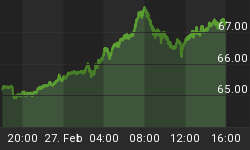It's been less than a month since the proposed fiscal year 2006 Federal budget was in the news. If you can barely recall the story -- or don't remember it at all -- that tells you have fast the news coverage came and went, which must have been a relief for the politicians. Their worst fear should be that taxpayers would look long enough to find the countless examples of the absurd and outrageous in the small print.
Yes, I realize that this budget had "the first outright cut in this wide swath of government programs proposed by any president since Ronald Reagan," and I also know that critics called it "mean, not lean."
But these debates are misleading at best. The political process is not about making government smaller, only about how much larger it will be. The budget has increased in every one of the past 30 years. Look it up. The Federal government will collect more taxes in the new fiscal year than in the previous one (again); it will spend more than it collects (again); and, its total spending will exceed total spending in the previous year (did I say "again"?).
During the brief news cycle when the budget was in the headlines, I came across an AP wire story about the Department of Transportation budget: the article said the department was getting a spending increase for a new headquarters building, to the tune of $100 million. One hundred million bucks for a new building. I tried to find the line item where the enterprising reporter uncovered saw this, but I was unable to. It was nowhere in the 12-page OMB summary of the Department of Transportation's budget.
Nor was it in the 27-page summary tables of the entire budget, but there sure was a lot of other stuff. For example, you may think that $29.3 billion should equip the Department of Homeland Security to carry out its mission. Apparently not, because tens or hundreds of millions of additional Homeland Security dollars were also doled out to every other cabinet-level agency and then some -- including the Smithsonian Institution ($75 million), the National Science Foundation ($342 million), and the Department of Health and Human Services ($4.2 billion). There was also my favorite line item in any respectable funding table, the ever-present "Other," in this case "Other Agencies," which received $813 million.
And it was right around this time (Feb. 4) that Fed Chairman Greenspan gave a speech about the current account (or trade) deficit, and said:
"The voice of fiscal restraint, barely audible a year ago, has at least partially regained volume. If actions are taken to reduce federal government dissaving, pressures to borrow from abroad will presumably diminish."
"Fiscal restraint"? I myself haven't heard that voice at any volume -- not now, not a year ago. The federal government sure isn't going to slow down its spending; all that stuff about budget cuts is rubbish. "Cuts" is code language for a slower rate of growth. The budget gets bigger every year. Look it up.
You can probably imagine what I think of all this, so I needn't spell it out. Budget "debates" come and go in the news more often than you may imagine, but rarely for very long. Next time it does, remember some of the figures above. And think about the small print.















